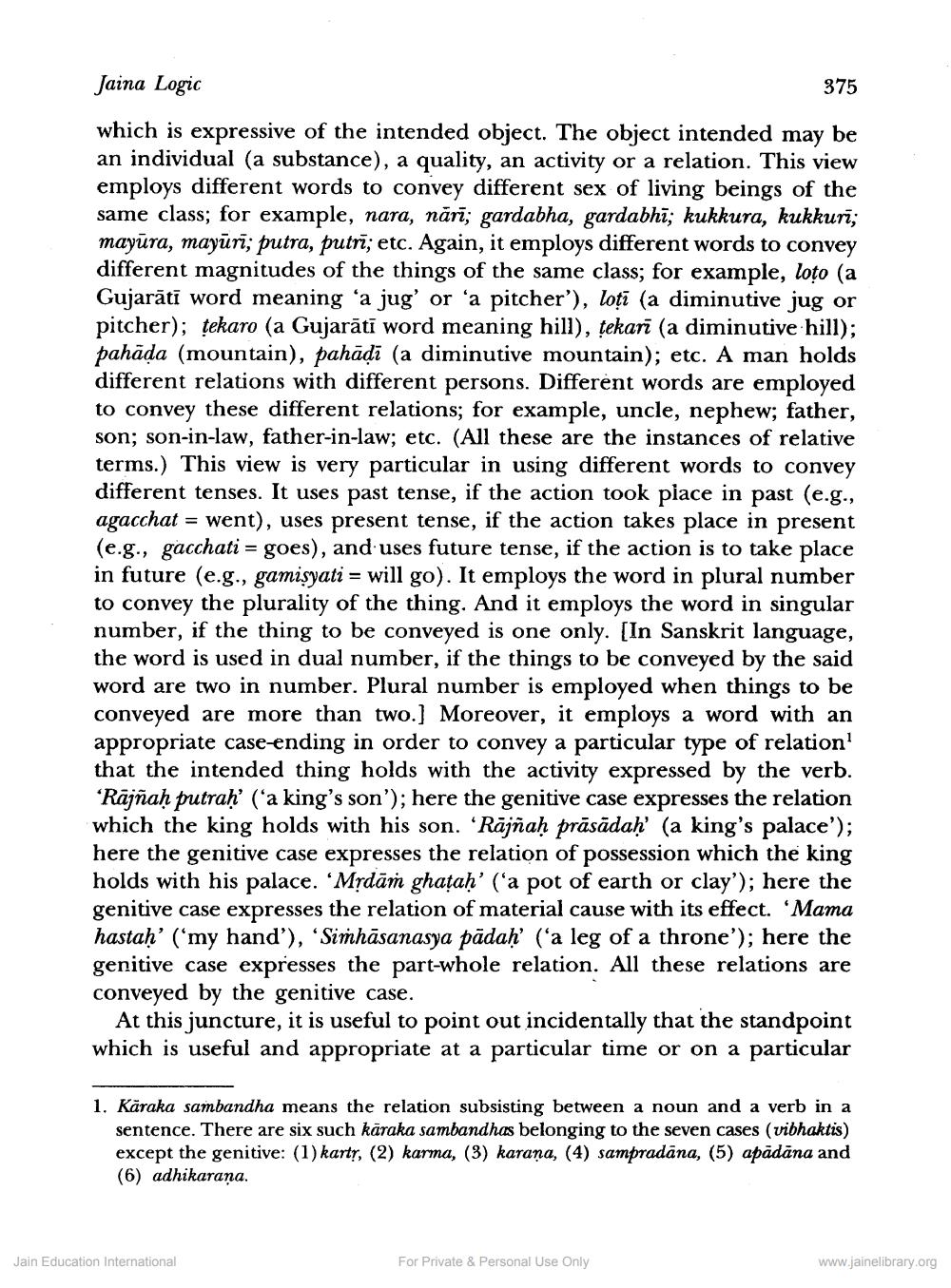________________
Jaina Logic
375
which is expressive of the intended object. The object intended may be an individual (a substance), a quality, an activity or a relation. This view employs different words to convey different sex of living beings of the same class; for example, nara, nări; gardabha, gardabhi; kukkura, kukkurī; mayūra, mayūrī; putra, putri; etc. Again, it employs different words to convey different magnitudes of the things of the same class; for example, loto (a Gujarāti word meaning 'a jug' or 'a pitcher'), loți (a diminutive jug or pitcher); tekaro (a Gujarātī word meaning hill), tekari (a diminutive hill); pahāda (mountain), pahāḍī (a diminutive mountain); etc. A man holds different relations with different persons. Different words are employed to convey these different relations; for example, uncle, nephew; father, son; son-in-law, father-in-law; etc. (All these are the instances of relative terms.) This view is very particular in using different words to convey different tenses. It uses past tense, if the action took place in past (e.g., agacchat = went), uses present tense, if the action takes place in present (e.g., gacchati goes), and uses future tense, if the action is to take place in future (e.g., gamisyati = will go). It employs the word in plural number to convey the plurality of the thing. And it employs the word in singular number, if the thing to be conveyed is one only. [In Sanskrit language, the word is used in dual number, if the things to be conveyed by the said word are two in number. Plural number is employed when things to be conveyed are more than two.] Moreover, it employs a word with an appropriate case-ending in order to convey a particular type of relation1 that the intended thing holds with the activity expressed by the verb. 'Rajñaḥ putraḥ' ('a king's son'); here the genitive case expresses the relation which the king holds with his son. 'Rajñaḥ prāsādaḥ' (a king's palace'); here the genitive case expresses the relation of possession which the king holds with his palace. 'Mṛdām ghaṭaḥ' ('a pot of earth or clay'); here the genitive case expresses the relation of material cause with its effect. 'Mama hastaḥ' ('my hand'), 'Simhāsanasya pādaḥ' ('a leg of a throne'); here the genitive case expresses the part-whole relation. All these relations are conveyed by the genitive case.
At this juncture, it is useful to point out incidentally that the standpoint which is useful and appropriate at a particular time or on a particular
1. Kāraka sambandha means the relation subsisting between a noun and a verb in a sentence. There are six such karaka sambandhas belonging to the seven cases (vibhaktis) except the genitive: (1) karty, (2) karma, (3) karana, (4) sampradāna, (5) apādāna and (6) adhikarana.
Jain Education International
For Private & Personal Use Only
www.jainelibrary.org




